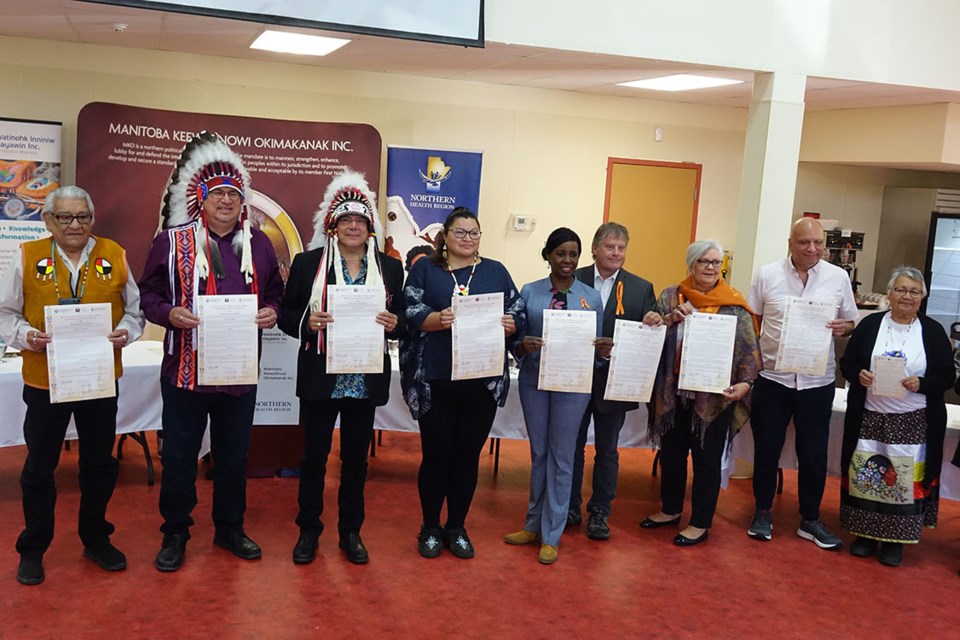A declaration to end Indigenous-specific racism in the Northern Manitoba healthcare system was signed Sept. 26 by the three parties that developed it and future work will include monitoring how well the system achieves the goals within it.
A joint undertaking by the Northern Regional Health Authority, which administers health care in the province’s north, Manitoba Keewatinowi Okimakanak, which represents two dozen Northern First Nations, and Keewatinohk Inniniw Minoayawin, a First Nations health agency established by MKO, the declaration was described as a first step toward ensuring that Indigenous patients receive the same level of care and respect from healthcare providers as non-Indigenous patients.
Acknowledging that anti-Indigenous racism has existed and continues to exist within the NRHA’s facilities and programs, the health region’s CEO Helga Bryant apologized on behalf of the regional health authority’s staff.
“We are truly sorry for the pain we have caused,” she said. “We collectively hope that healing can begin as we work in partnership to eliminate all forms of Indigenous-specific racism through the Northern Health Region. We know that we all have much to learn and, in many cases, to unlearn.”
Bernice Thorassie, an MKO employee who works with First Nations people to help them navigate the healthcare system, says she had already received 1,400 calls by June of this year from people concerned about their healthcare interactions, noting that healthcare providers who are treating Indigenous patients differently than others may not understand how their actions are interpreted.
“Racism can be difficult to identify for people who are not used to experiencing that type of behaviour from service providers,” she said.
The ramifications of not taking Indigenous patients’ health concerns seriously or recommending appropriate treatment can be dire, Thorassie said.
“I believe that racism has resulted in many Indigenous people in Northern Manitoba having their feet or legs unnecessarily amputated.”
Ensuring that the declaration does more than serve as a symbol will require better tracking of health outcomes for Indigenous people and the ability to determine if they are offered the same treatment options as non-Indigenous patients, said Dr. Barry Lavallee of KIM.
“You need identifiers and data. That’s going to be one of the big functions that we are going to change.The experiences of people coming into the healthcare system are what needs to be monitored.”
A biannual reporting system will be developed to measure how well the NRHA is living up to its commitments under the declaration.
Creating a healthcare system in which Indigenous people feel adequately treated and respected takes more than just surface change, said MKO Grand Chief Garrison Settee.
“It requires work that extends beyond just cultural sensitivity training,” he said. “It needs a multi-level approach to address systemic organizational and interpersonal interventions. It requires long-term, sustainable and impactful changes. “
Making those changes, which are long overdue, won’t be easy or comfortable, but the effort is necessary.
“We will not stop until we have eliminated the profound harms of racism,” said the grand chief.
Manitoba Health Minister Audrey Gordon was in Thompson to witness the signing of the declaration and says the process that went into developing it and the systems that will be implemented to measure progress can be a guide to the rest of the health regions and the provincial healthcare system as a whole.
“I believe there will be important learnings that we can take from here in the north to improve care for Indigenous Peoples, not just here in the north but across the province,” she said.




